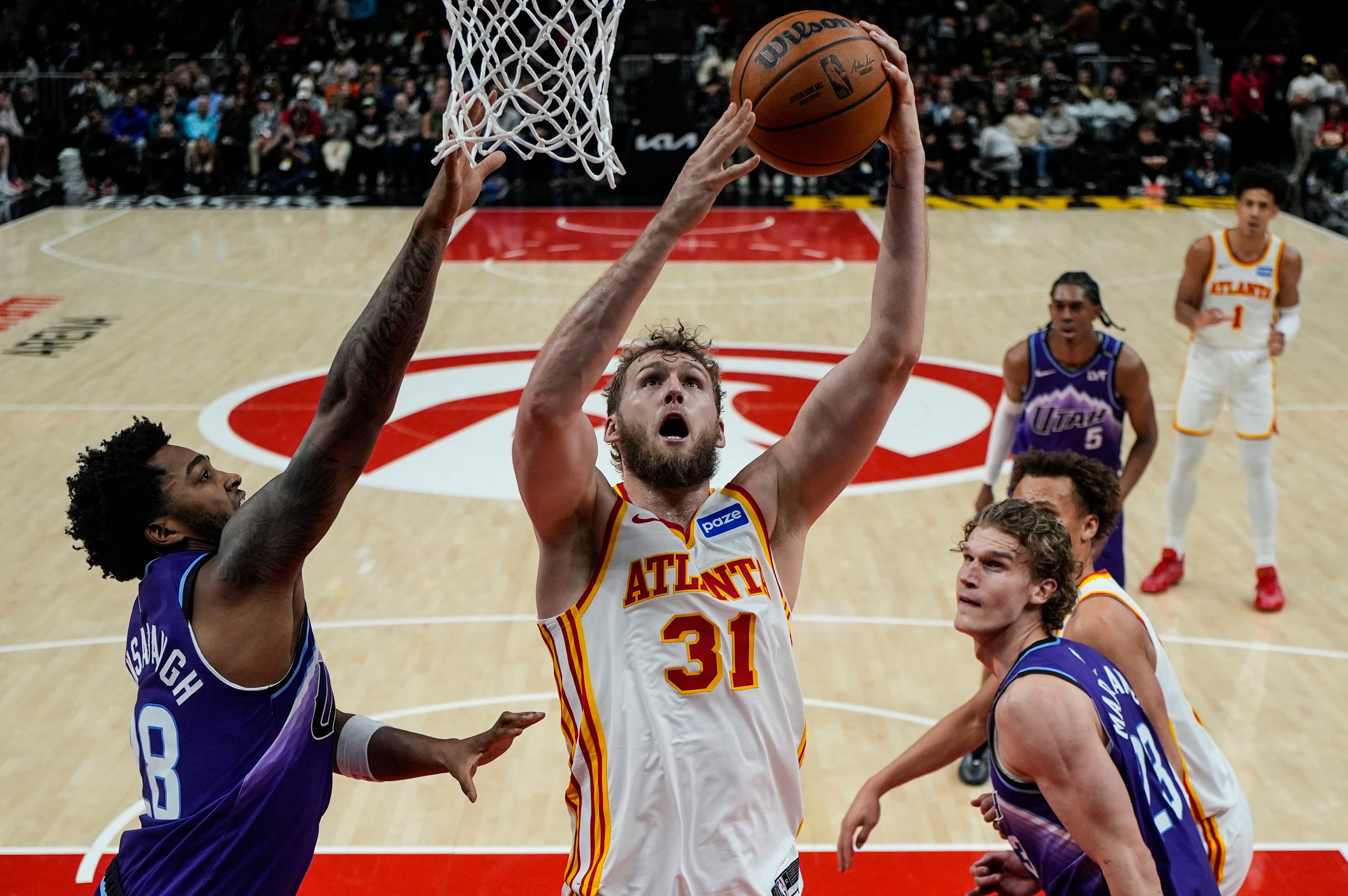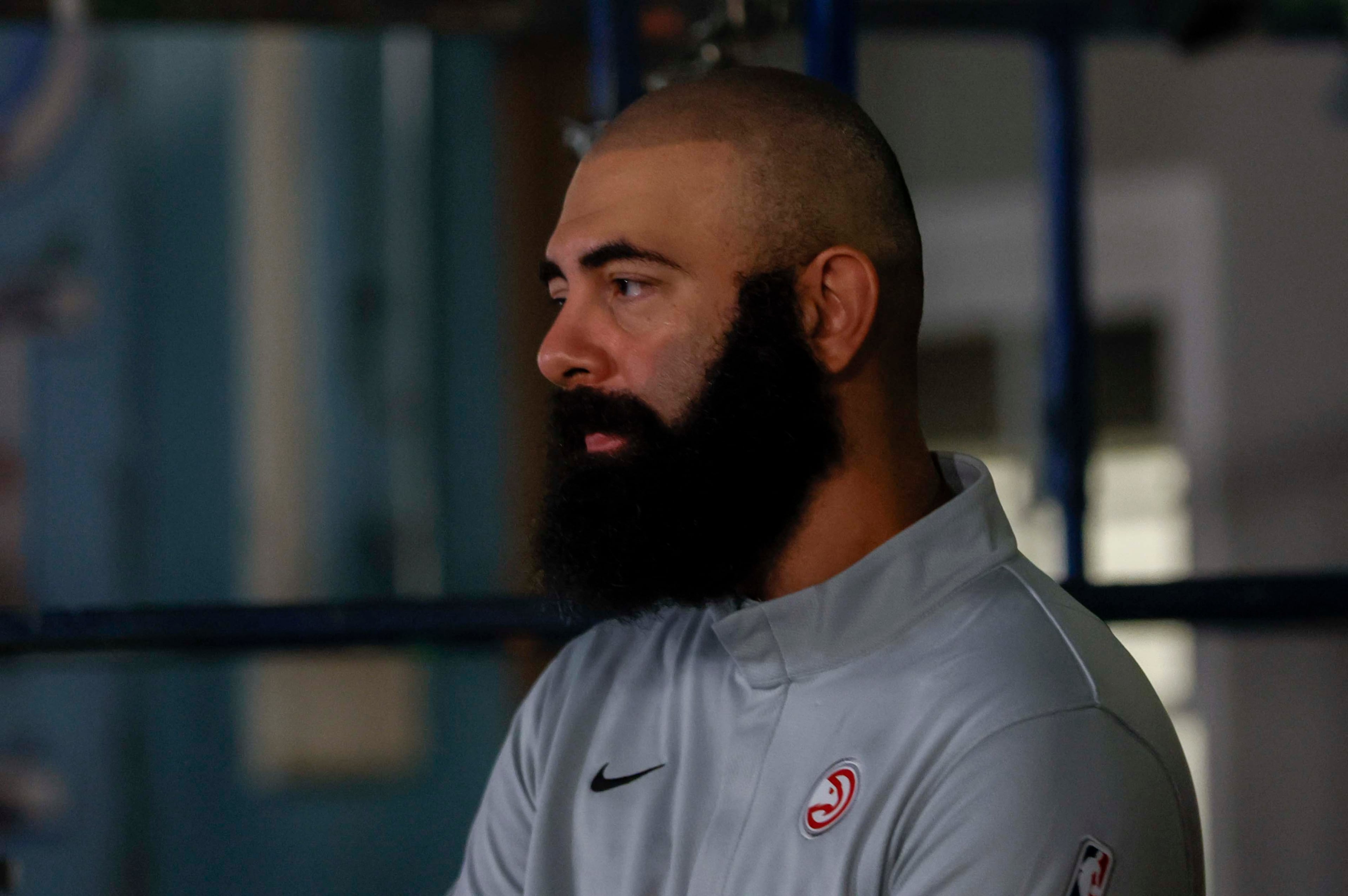If Howard can help Hawks, he’ll change how his story is written
In so many ways, Dwight Howard checks every box.
Hometown kid returns to Atlanta with a smile as wide as 285. Rebounding and defensive force fills long-time franchise void. Perennial All-Star vows to help repair a wounded franchise that’s rapidly losing our attention.
In so many ways, Dwight Howard stomps on every box.
He’s on the wrong side of 30 and health is an increasing issue. His heart, leadership and a willingness to develop chemistry with teammates have been questioned, and he replaces a player (Al Horford) who never lacked in those areas. Motives are uncertain: Did he really come back to Atlanta to complete a warm-and-fuzzy storyline or did the Hawks simply go far beyond what any other team would offer in a tepid free-agent market?
This isn’t just about the Hawks. This is about Howard’s legacy and how he wants to be remembered. Because for as great and dominant as he once was, his image isn’t nearly as shiny as that smile or the early career resume. He knows it.
“My hope is that by the time I retire from the Hawks, in hopefully eight or nine years, that it’s going to be a way different story than the middle chapters of my career,” Howard said.
(Yes, he said eight or nine years. One seems like a good starting point.)
“Every great NBA player has gone through things. Every superhero, every person has gone through a period in their life when they had to make decisions and grow. Unfortunately for me, my growing up was in the public and was magnified so the whole world saw it, and I was judged on that.”
Things didn’t end well in Orlando or Los Angeles or Houston. It wasn’t all Howard’s fault. With the Lakers, he was coming off back surgery. With the Rockets, he and the ball-hogging James Harden weren’t a good match. But the clashes with coach Stan Van Gundy and the forced exit from the Magic, the criticism from Kobe Bryant, the response to being an afterthought in the Rockets’ offense — he didn’t deal with any of it well.
“There were some things I could’ve done better,” he said.
Step 1: acceptance.
“The last couple of years have really molded me for this opportunity, going through some different hardships, learning what to do and what not to do, learning how to talk to teammates, how to build chemistry, all of those things,” he said.
“I can’t let certain things affect me. There might be nights when I don’t get the touches I want, but I can still be aggressive on defense, I can still do whatever I can to get an offensive rebound. I need to speak up when things are going against me or the media is portraying me as something I’m not. I need to do things that in the past were out of my comfort zone.”
It all sounds so perfect now. What happens when the season starts?
The Hawks won't say it publicly, because they're having a hard enough time selling tickets, but they know they're taking a chance. They knew when they balked at giving Horford a max contract that he probably would walk. So they convinced themselves that Howard could rescue them — and maybe they could rescue him.
Coach Mike Budenholzer somewhat bonded with Howard during the player’s free agency tour in 2013. Budenholzer believes Howard can be valuable in pick-and-rolls, as he was in his best years in Orlando, as well as clean up baskets on the offensive boards. He also says he believes in Howard, the person.
There’s a level of desperation on both sides now. Howard’s reputation hasn’t really recovered since 2012 when Van Gundy told the media Howard was pushing for his firing and the two had that bizarre news conference meeting. The Hawks have slid significantly since peaking in the 2014-15 Eastern Conference finals and are projected to finish just north of .500. If they don’t resemble a legitimate playoff threat as the trade deadline approaches, there’s a good chance they will deal their best player, Paul Millsap, who’s expected to opt out after the season.
Then what? Howard will be on the payroll two more years, and history suggests he will be at the center of dysfunction in the locker room.
“I think it’s probably better for me not to think in the (past),” Budenholzer said when asked about Howard’s recent exits. “He’s been incredibly positive with us. I think he’s in a good place.”
Today, that’s true. Howard wants this to work and needs this to work.
“Listen, people are going to say what they want to say about me,” he said. “I know since I’ve been in the league, I’ve always been in the community, I’ve always helped people out, I’ve always busted my ass every single day to be the player I am. Sometimes people take kindness as a weakness and they use that against me. Maybe that’s something I could’ve handled better.”
And then: “I think all that bad stuff people have been saying is going to turn around.”
Maybe. But only if the view changes.


